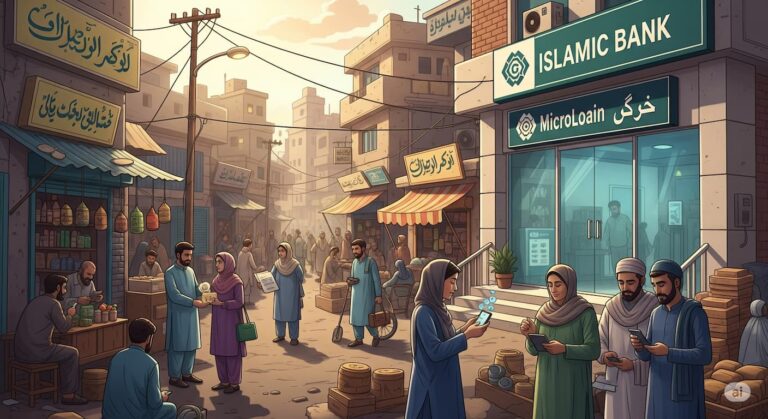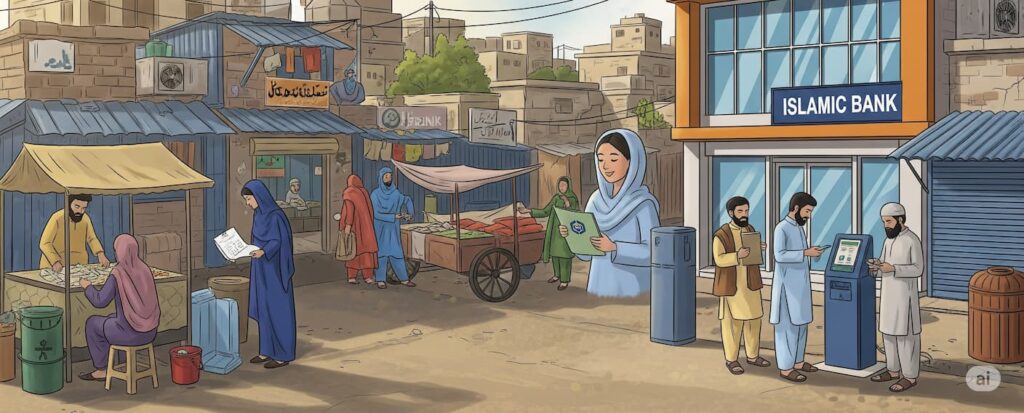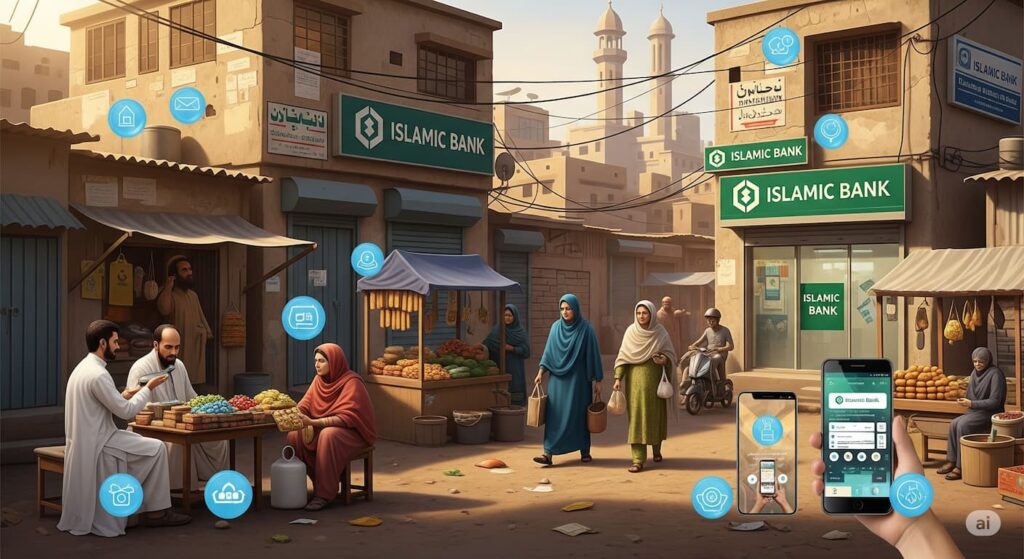Poverty has long been a challenge in Pakistan, affecting millions of families across cities and rural villages alike. But there’s an often-overlooked force quietly making a difference — Islamic banks. These banks aren’t just about offering services without interest; they are actively helping fight poverty in Pakistan by aligning financial tools with ethical values rooted in Islamic teachings.
This guide will walk you through how these institutions operate, what makes them different, and why their unique approach is giving people a real chance at a better life. If you’ve ever wondered how finance and faith can come together to serve society, you’re in for an inspiring read.
Why Poverty Persists in Pakistan
Before looking into solutions, it’s helpful to understand the problem:
- High unemployment and underemployment, especially among youth.
- Lack of access to fair credit, especially in rural and underprivileged urban areas.
- Inflation and weak social safety nets, making life harder for daily wage earners.
- Conventional banking often excludes those who cannot meet strict lending criteria or who avoid interest-based loans for religious reasons.
What Makes Islamic Banking Different?
Islamic banking isn’t just banking without interest — it’s a system built on Shariah principles that emphasize justice, fairness, and social responsibility. Here’s how it works:
- No Riba (interest): All transactions must avoid interest.
- Asset-backed financing: Money must be linked to real assets, not speculation.
- Risk-sharing: Profit and loss are shared, not one-sided.
- Ethical investments only: Funds cannot be invested in harmful industries like alcohol, gambling, or weapons.
These principles create a more inclusive, ethical financial environment, especially important in countries like Pakistan where many people seek Halal alternatives.
How Islamic Banks Are Helping Fight Poverty in Pakistan
- Interest-Free Microfinance
Islamic banks partner with microfinance institutions to offer small, interest-free loans to:
- Women entrepreneurs
- Small shop owners
- Farmers and artisans
For example, Akhuwat, a charity-based microfinance institution, works with Islamic finance principles and has disbursed over PKR 150 billion in interest-free loans across Pakistan.
- Zakat and Sadaqah Distribution
Many Islamic banks facilitate and manage zakat (obligatory charity) and sadaqah (voluntary charity) distribution channels:
- Zakat funds are often directed toward education, healthcare, and food assistance.
- Banks like Meezan Bank and Bank Islami actively engage in charitable programs.
- Qard-e-Hasan (Benevolent Loans)
Some banks offer Qard-e-Hasan, a form of zero-profit loan for urgent needs like:
- Medical emergencies
- Education expenses
- Marriage or family support
These loans are repaid without interest and often with very flexible terms.
- Supporting Small Businesses with Mudarabah and Musharakah
Instead of charging interest, Islamic banks offer partnership-based financing such as:
- Mudarabah: Bank provides capital, entrepreneur provides expertise — profits shared.
- Musharakah: Both the bank and the entrepreneur invest capital and share profits and risks.
These models help uplift small businesses and empower local economies.
- Islamic Housing Finance for Low-Income Families
Through Diminishing Musharakah, Islamic banks offer housing finance where:
- The bank and the client jointly own the property.
- The client gradually buys out the bank’s share while paying rent for the remainder.
This provides a shariah-compliant path to home ownership for middle- and lower-income families.
Real Stories: Lives Changed by Islamic Banking
- Fatima, Lahore: Started a home tailoring business with a Qard-e-Hasan loan. Now employs three other women.
- Ahmed, Multan: Got a no-interest loan to expand his motorcycle repair shop. Doubled his income.
- Sajida, Swat: Used a zakat grant for her children’s education and now volunteers at her local Islamic bank branch.
These stories are not isolated cases. They are part of a growing wave of grassroots empowerment.
The Power of Faith-Based Finance in a Modern Economy
Islamic banks are not just operating from a moral perspective — they’re practical too. By designing products that align with religious beliefs and economic needs, they are winning the trust of:
- First-time bank users
- Rural communities
- Conservative families
- Women entrepreneurs
The Bigger Picture: Shaping a More Just Economy
Islamic banking in Pakistan isn’t just about individual success — it’s about systemic change:
- Reducing dependence on international interest-based loans
- Encouraging local investment and production
- Bridging the gap between urban and rural financial inclusion
Challenges and Limitations
Of course, the journey isn’t without hurdles:
- Limited outreach in remote regions
- Lack of awareness about Islamic financial products
- Misconceptions about Islamic banking being the same as conventional banking
- Regulatory constraints on product innovation
What Can Be Done Better?
- Financial literacy programs to teach people about Islamic banking
- Digital inclusion — mobile banking solutions for rural users
- Government support in scaling zakat-distribution mechanisms
- Public-private partnerships to expand microfinance efforts
Final Thoughts: A Faithful Path to Prosperity
Islamic banking isn’t a silver bullet, but it’s a powerful tool in the fight against poverty in Pakistan. It respects faith, empowers communities, and brings dignity to those who want to stand on their own feet without compromising their values.
In a country where nearly a third of the population lives below the poverty line, this approach is not only welcome — it’s essential.
What if the solution to poverty wasn’t charity or handouts, but a fairer financial system based on compassion and shared success?
References:
- State Bank of Pakistan – Islamic Banking Bulletin
https://www.sbp.org.pk/ibd.asp - Akhuwat Foundation – Reports and Impact Studies
https://www.akhuwat.org.pk/ - Meezan Bank – Annual CSR and Social Impact Reports
https://www.meezanbank.com/financial-statements/ - World Bank – Pakistan Poverty and Equity Data
https://povertydata.worldbank.org/poverty/country/PAK - International Monetary Fund (IMF) – Financial Inclusion and Islamic Finance Studies
https://www.imf.org/en/Publications/WP/Issues/2015/09/14/Financial-Inclusion-Can-it-Meet-Multiple-Macroeconomic-Goals-42649




